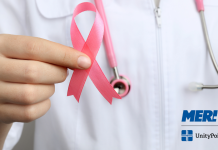Courtesy of the Wisconsin Department of Health Services, Healthcare-Associated Infections Prevention Program

You’re a few hours into the workday when you get the dreaded call from day care. Your child is sick. What you thought was just a runny nose turned into a cough and fever in a matter of hours. You drop what you’re doing and pick up your sick child from day care. The fever goes away after a few hours, with the help of some fever-reducing medication and screen time, but the cough lingers. You’re beginning to wonder if antibiotics could help.
When your child is sick, you’ll do just about anything to help them feel better. But antibiotics aren’t always the answer. Using antibiotics when they aren’t needed won’t make your child feel better and can cause side effects ranging from diarrhea and rash to something more serious such as life-threatening allergic reactions.
Does my child need antibiotics?
Antibiotics are only needed if your child’s illness is caused by bacteria. They are not needed if your child’s illness is caused by a virus. This includes the common cold, runny nose, sore throat (except strep throat), flu, RSV, and COVID-19. Respiratory illnesses like these can last a few weeks but usually get better on their own, without the use of antibiotics.
If you’re wondering whether antibiotics would make your child feel better, check the chart below. If you’re still unsure, talk to your child’s doctor. They may suggest testing to determine if antibiotics are needed. If antibiotics aren’t necessary, ask about other ways you can help your child feel better, such as over-the-counter medication. 
Use antibiotics safely
Antibiotics save lives, but it is important they are only used when absolutely necessary. Overuse of antibiotics has created antibiotic-resistant germs (aka superbugs), which is when bacteria outsmart antibiotics. Using antibiotics safely and only when needed helps keep them effective for future generations.
If your child is prescribed antibiotics, take these steps to use them safely:
- Give them to your child as prescribed. Follow the exact dose and duration. Contact your child’s doctor if you have any questions.
- Contact your child’s doctor if you notice any side effects such as rash, nausea, or diarrhea. If your child develops an allergic reaction, immediately visit an emergency department, or dial 911.
- Avoid sharing antibiotics or saving them for later. Talk to a pharmacist about how you can safely get rid of leftover antibiotics or locate a drug drop box near you.
Take steps to keep your family healthy
Follow steps to protect your family and others from getting sick:
- Wash your hands often with soap and water or use alcohol-based hand sanitizer. Encourage everyone in the family to wash their hands at key times, such as before eating food and after using the toilet.
- Make sure your family is up to date on any recommended vaccines such as COVID-19 and flu. RSV vaccines may also be available for eligible children under the age of 19 months and people who are pregnant.
- Cover coughs and sneezes.
- Avoid touching your eyes, nose, and mouth with unwashed hands.
- Clean and disinfect frequently-touched surfaces around your home.
- Stay home when you are sick.












